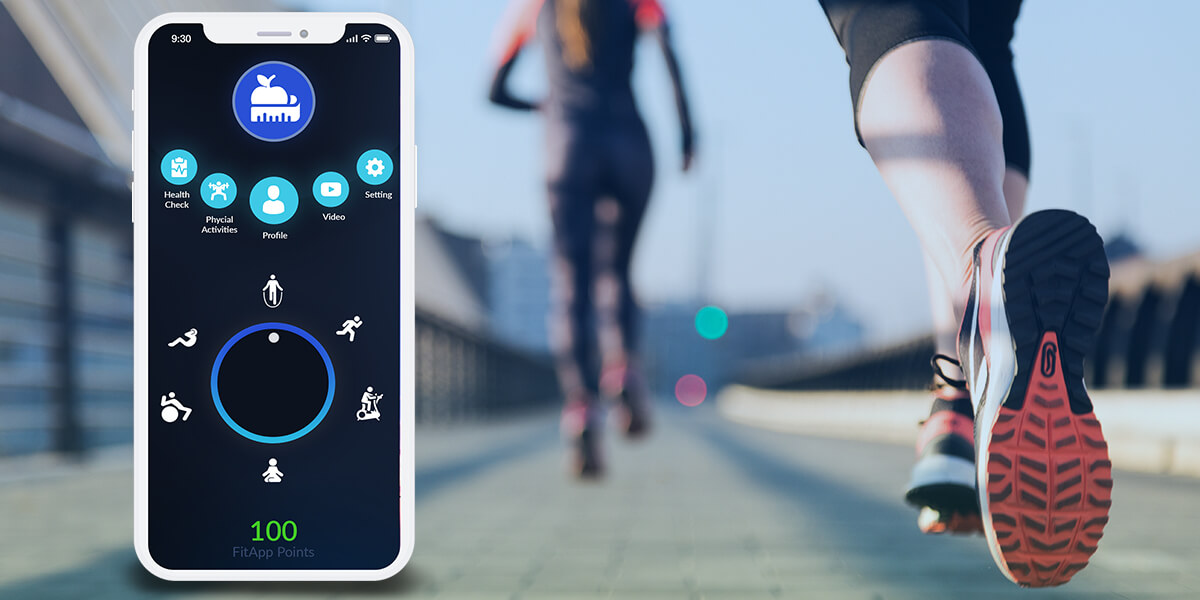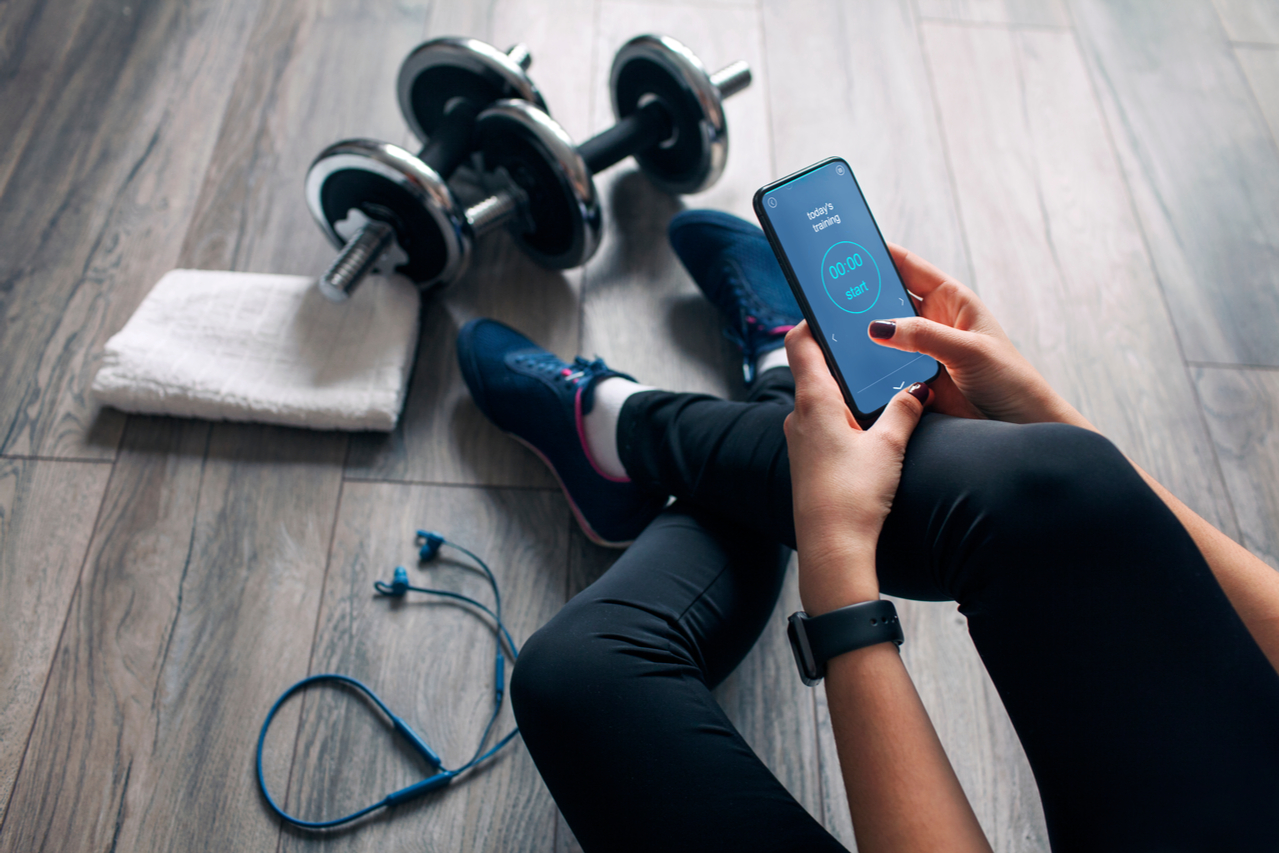Technology has revolutionized almost every aspect of our lives, including the way we stay fit and healthy.
Gone are the days of relying solely on gym memberships and personal trainers – now, all you need is a smartphone and the right fitness app. With so many options available, it can be overwhelming to choose the best one for your needs.
In this article, we will explore the importance of fitness, the rise of fitness apps, and the features to look for when deciding which app to download. We will also review the top fitness apps on the market and provide tips on how to make the most of your chosen app.
Understanding the Importance of Fitness

Fitness goes beyond just looking good – it plays a vital role in our overall well-being. Engaging in regular physical activity helps to improve cardiovascular health, boost the immune system, and maintain a healthy weight.
Additionally, exercise releases endorphins, also known as the “feel-good” hormones, which can reduce stress, anxiety, and even depression. The benefits of staying fit extend beyond the physical, positively impacting our mental and emotional health as well.
When it comes to understanding the importance of fitness, it is essential to recognize the role it plays in our overall health. Regular exercise can help prevent or manage conditions such as heart disease, diabetes, and certain types of cancer.
It improves bone density, which is particularly important as we age. Exercise also enhances cognitive function, memory, and concentration. By engaging in physical activity, we are not only taking care of our bodies but also investing in our long-term health and quality of life.
However, the benefits of staying fit are not limited to physical health alone. Engaging in regular exercise has a profound impact on our mental well-being as well.
Exercise stimulates the release of endorphins, which can elevate our mood and reduce symptoms of depression and anxiety. These “feel-good” hormones create a sense of happiness and contentment, making us feel more positive and energized.
Moreover, exercise provides a natural outlet for stress and can improve sleep quality, allowing us to feel more rested and rejuvenated.
Furthermore, being part of a fitness community can have significant psychological benefits.
When we engage in physical activities with others, we create a sense of belonging and camaraderie. This sense of community can provide social support, which is crucial for overall happiness and well-being.
Whether it’s joining a sports team, attending group fitness classes, or participating in outdoor activities, being part of a fitness community allows us to connect with like-minded individuals and build meaningful relationships.
Understanding the importance of fitness goes beyond the surface level. Regular physical activity not only improves our physical health but also has a profound impact on our mental and emotional well-being.
By prioritizing fitness, we are investing in our long-term health, happiness, and overall quality of life.
So, let’s lace up our sneakers, hit the gym, or go for a run and reap the numerous benefits that fitness has to offer!
The Rise of Fitness Apps

With the advancement of technology, fitness apps have become increasingly popular and accessible. These apps allow us to track our progress, customize our workouts, and connect with like-minded individuals. The convenience they offer is unparalleled, providing a personal trainer and fitness center right at our fingertips.
But what exactly is driving the rise of fitness apps? Let’s delve deeper into the world of technology and its impact on fitness.
How Technology is Changing Fitness
Technology has revolutionized the way we approach fitness. Fitness apps use algorithms and artificial intelligence to provide personalized workout plans based on individual goals, fitness levels, and preferences. These apps go beyond the traditional one-size-fits-all approach and cater to our specific needs.
Imagine having a virtual personal trainer who knows your strengths, weaknesses, and limitations. Fitness apps can analyze data from our previous workouts and make adjustments to our plans accordingly. They take into account factors such as our heart rate, calories burned, and even our sleep patterns to optimize our fitness routines.
Moreover, these apps offer a variety of options to cater to different fitness interests. Whether we want to focus on cardio, strength training, yoga, or even meditation, there is an app for every preference. With instructional videos and audio cues, these apps can guide us through proper form and techniques, ensuring a safe and effective workout.
The Convenience of Fitness Apps
Gone are the days of waiting for a machine at the gym or having to commute to a fitness class. Fitness apps allow us to exercise anytime, anywhere. Whether we prefer working out in the comfort of our own homes or taking our workouts outdoors, we can always have a fitness app handy.
Imagine waking up in the morning and deciding to squeeze in a quick workout before starting your day. With a fitness app, you can simply grab your phone and get started without any hassle. No more excuses for skipping workouts – our personalized fitness trainer is just a few taps away.
Furthermore, fitness apps provide a sense of community and support. Many apps have social features that allow us to connect with like-minded individuals, join challenges, and share our progress. This virtual support system can be motivating and inspiring, especially when we need that extra push to stay on track with our fitness goals.
Fitness apps have revolutionized the way we approach fitness. With their personalized workout plans, instructional videos, and convenience, they have become an integral part of many people’s fitness journeys.
As technology continues to advance, we can only expect these apps to become even more sophisticated and user-friendly, further enhancing our fitness experiences.
Features to Look for in a Fitness App

When choosing a fitness app, it is essential to consider the features it offers to ensure it aligns with our goals and preferences.
Let’s explore some key features that can enhance your fitness journey.
1. Comprehensive Health Tracking
A robust fitness app should serve as a hub for all-encompassing health data. Beyond basic step counting, look for apps that integrate seamlessly with devices like the Apple Watch, providing real-time insights into your daily activities, workouts, and even advanced metrics like blood pressure.
2. Diverse Workout Options
The ideal fitness app should cater to various preferences and fitness levels. Whether you’re into strength training, indoor cycling, or calming yoga workouts, the app should offer a diverse range of workouts that align with your goals and keep you engaged in your fitness routine.
3. Personalized Approach to Fitness
Look for an app that goes beyond generic workout suggestions. A standout feature is the ability to craft a personalized weight loss plan based on your fitness level, goals, and preferences.
This tailoring ensures that your fitness journey is unique to you, enhancing the effectiveness and sustainability of your efforts.
4. Nutritional Support
A holistic approach to fitness involves not just exercise but also nutrition. The app should feature tools for healthy recipes, meal planning, and even calorie counting. Some apps even provide a comprehensive food database for accurate food tracking and logging to help you maintain a balanced diet.
5. Accessibility and Compatibility
Ensure that the fitness app is accessible across platforms, supporting both iOS and Android devices.
The availability of a free version allows users to explore the app’s basic features without financial commitment. This inclusivity ensures that individuals from various backgrounds can embark on their fitness journey.
6. Premium Subscription for Advanced Features
For those seeking a deeper, more enriched fitness experience, consider apps with a premium subscription.
This unlocks a trove of advanced features, from personal training sessions to exclusive workouts, offering a higher level of customization and engagement in your fitness routine.
7. Motivational Elements
Staying motivated is integral to a successful fitness journey. Look for apps that offer features such as live classes, on-demand workouts, and a supportive community. These elements add a dynamic and motivational aspect to your fitness routine, encouraging consistency and progress.
8. Integration with Health Professionals
Some fitness apps take it a step further by integrating health professionals into the user experience. This might include access to nutrition experts who can provide guidance on macronutrient intake or personalized advice based on your current weight and health goals. This professional touch adds a layer of expertise to your wellness journey.
The world of fitness apps is diverse and dynamic, with each app offering a unique set of features.
By prioritizing comprehensive health tracking, personalized approaches, and motivational elements, you can make an informed choice to support your fitness goals.
Remember, the right fitness app is not just a tool; it’s a companion in your journey toward a healthier, more active lifestyle.
Reviewing the Top Fitness Apps

When it comes to finding the best fitness apps, there are plenty of options to choose from. Whether you’re looking for cardio workouts or strength training programs, these apps can help you achieve your fitness goals.
Let’s take a closer look at some of the top apps in each category.
Best Apps for Cardio Workouts
1. StrongLifts
Pros:
- Strength Training Emphasis: StrongLifts shines in its emphasis on strength training, making it an ideal choice for those seeking to build muscle and enhance overall physical fitness.
- Structured Workouts: The app offers meticulously structured workouts, utilizing compound movements to engage multiple muscle groups simultaneously.
- Clean Interface: Users appreciate the app’s minimalist and intuitive interface, ensuring a seamless workout experience.
Cons:
- Limited Cardio Variety: While potent for strength training, StrongLifts might lack the diversity of cardio workouts found in other apps, making it less suitable for those desiring a holistic cardio approach.
- Premium Features at a Cost: Advanced features come with a premium subscription, introducing an additional cost for users seeking a more comprehensive fitness experience.
2. JEFIT
Pros:
- Versatile Workouts: JEFIT caters to a wide range of fitness goals, incorporating both strength training and diverse cardio exercises.
- Personalized Tracking: The app allows users to track their fitness data comprehensively, from calorie intake to weight loss progress, fostering a holistic view of their wellness journey.
- Social Connectivity: With a robust community feature, JEFIT enables users to connect with fellow fitness enthusiasts, adding a social element to their workouts.
Cons:
- Learning Curve: Some users might find the app’s extensive features initially overwhelming, requiring time to acclimate to its full potential.
- Free Version Limitations: While a free version is available, accessing the app’s complete suite of features necessitates opting for the premium subscription, potentially discouraging budget-conscious users.
3. Strava
Pros:
- Catering to Cyclists and Runners: Strava stands out for its specialization in tracking and enhancing outdoor cardio activities, particularly for cyclists and runners.
- Competitive Edge: The app introduces a competitive element, allowing users to compare their performance with others and set personal records.
- Comprehensive Metrics: From route mapping to analyzing calorie goals, Strava provides comprehensive metrics for users invested in outdoor cardio pursuits.
Cons:
- Limited Indoor Cardio: While stellar for outdoor activities, Strava might lack the breadth of workouts for those preferring indoor cardio exercises.
- Subscription Costs: Accessing advanced features and removing ads requires a subscription fee, potentially deterring users looking for a fully free experience.
4. Apple Health
Pros:
- Holistic Health Tracking: Apple Health serves as a centralized hub for comprehensive health data, consolidating information from various sources. Whether it’s tracking steps via the Apple Watch or integrating with third-party fitness apps, it provides a unified overview of your physical well-being.
- Seamless Integration with Apple Ecosystem: With a seamless connection to iOS and Android devices, Apple Health is not confined to a single platform. This cross-device compatibility ensures users can harness its benefits regardless of their chosen mobile ecosystem.
- Fitness Goals and Personalized Plans: The app empowers users to set and monitor their fitness goals with precision. Through its personalized approach, it tailors workout suggestions, offering healthy recipes and meal planning guidance, making it a versatile companion in the pursuit of individual health objectives.
- Robust Fitness Data Analytics: Apple Health excels in its ability to provide in-depth analytics on fitness data. From tracking strength training sessions to analyzing yoga workouts, it caters to a spectrum of activities, offering insights that resonate with those seeking a nuanced understanding of their physical fitness.
- Integration with Health Professionals: For those on a weight loss journey or specific health programs, the app’s connection with health professionals ensures a collaborative approach. It allows for a more informed and guided wellness experience, fostering a sense of confidence and security.
Cons:
- Restricted Customization in Free Version: While Apple Health offers a free version, unlocking its full potential often requires a premium subscription. This introduces an additional cost for users seeking a deeper, more personalized experience, potentially limiting accessibility.
- Varied Quality of Third-Party App Integration: The app’s efficacy can be contingent on the quality of integration with third-party fitness apps. Variances in this integration may result in discrepancies in the overall user experience, affecting the app’s reliability.
- Potential Device Dependency: Although Apple Health caters to a wide array of devices, its optimal functionality is often associated with the Apple ecosystem. This may pose a challenge for users who prefer different devices or platforms.
- Inherent Learning Curve: The app’s comprehensive nature might present a learning curve for some users. Navigating through its myriad features may require an investment of time to unlock its full potential.
- Limited Android Optimization: While available on Android, some features may be more optimized for iOS users, potentially affecting the user experience for those on Android devices.
5. Nike Training Club:
Pros:
- Holistic Workouts: Nike Training Club stands out for offering diverse workouts encompassing strength training, yoga, and dynamic cardio routines.
- Integration with Apple Health: Seamlessly integrates with Apple Health, ensuring accurate tracking of health data.
- Personalized Plans: The app crafts a personalized weight loss plan and tailors workouts to individual fitness levels, fostering sustainable and effective results.
Cons:
- Premium Subscription for Full Access: While a free version exists, unlocking the app’s full potential requires opting for the premium subscription, introducing an additional cost.
- Android Optimization Challenges: Some features may be more optimized for iOS users, potentially limiting the experience for those on Android devices.
6. General Fitness Apps:
Pros:
- Versatility: General fitness apps, encompassing the likes of Apple Health and others, offer a vast array of cardio workouts, making them suitable for a broad audience.
- Integration Across Platforms: These apps seamlessly operate on both iOS and Android, ensuring accessibility for a diverse user base.
- Free Versions Available: Many general fitness apps offer a free version, allowing users to explore basic features without immediate financial commitment.
Cons:
- Varied Quality: The quality of workouts and features can vary among different platforms, leading to potential discrepancies in the user experience.
- In-app Advertisements: Free versions may come with occasional ads, impacting the user interface and experience.
When it comes to choosing the right fitness app, it’s important to consider your goals, preferences, and fitness level. Whether you’re into cardio workouts or strength training, these top apps can help you stay motivated, track your progress, and achieve the results you desire.
So why wait? Download one of these apps today and start your fitness journey!
Making the Most of Your Fitness App

Setting and Achieving Fitness Goals
A fitness app is only as effective as the goals you set for yourself. Start by defining clear and attainable objectives, whether it is running a certain distance or losing a specific amount of weight.
Break down your goal into smaller milestones and track your progress regularly. Remember to celebrate your achievements along the way to stay motivated and engaged.
Integrating Fitness Apps into Your Daily Routine
To make the most of your fitness app, integrate it into your daily routine. Schedule your workouts as you would any other appointment and treat them with the same importance. Find a time of day that works best for you and stick to it.
Additionally, make use of the app’s features, such as push notifications and reminders, to keep yourself accountable and motivated.
Remember, consistency is key when it comes to achieving your fitness goals.
In Conclusion
Staying fit is no longer a challenge thanks to the wide variety of fitness apps available. These apps not only provide convenience but also offer personalized workout plans and tracking features to keep us motivated and engaged.
Whether your goal is to improve cardiovascular health, build strength, or simply enhance your overall well-being, there is a fitness app out there to help you achieve it.
So why wait? Download the best fitness app for you and embark on your fitness journey today!

